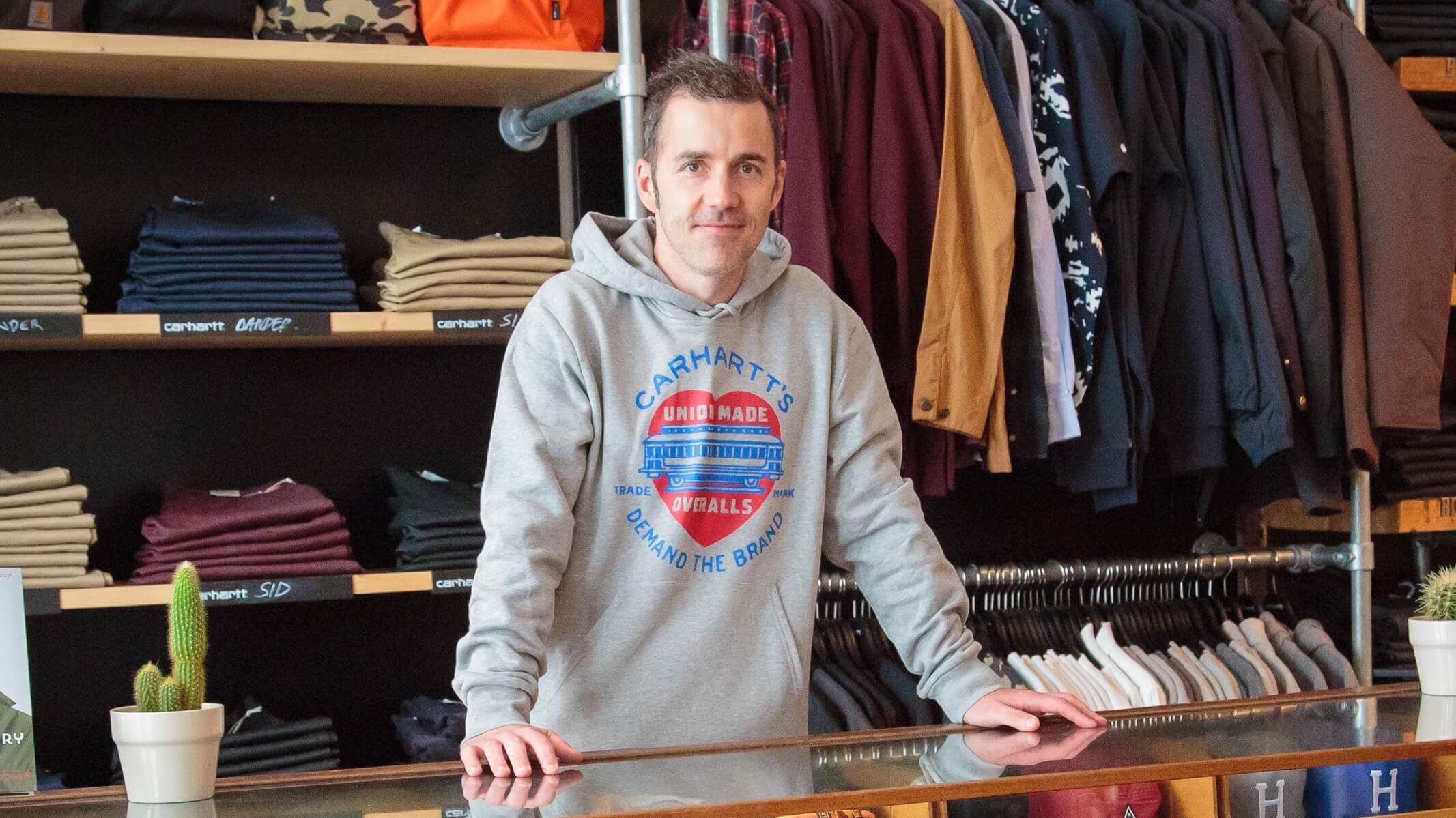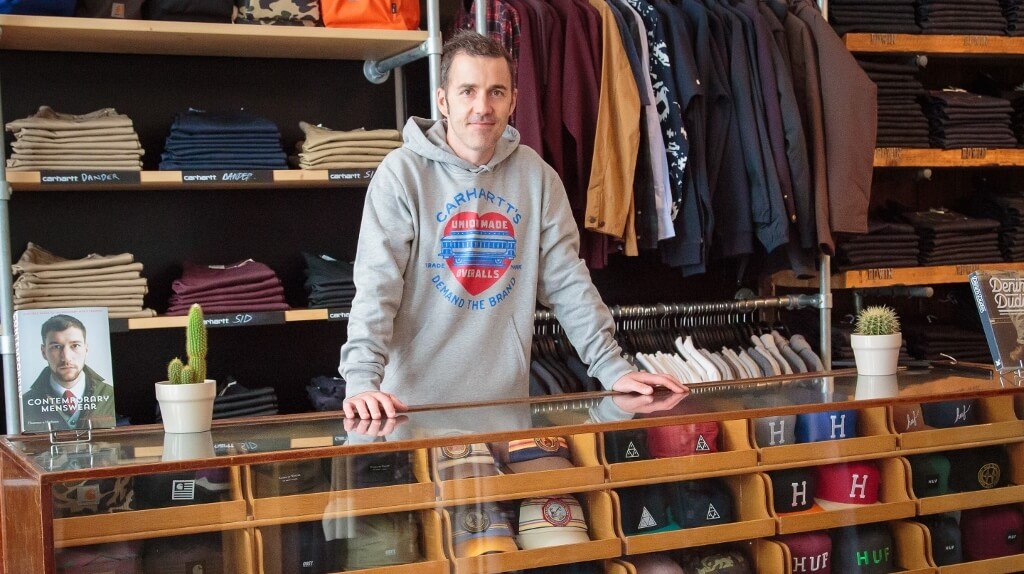Leslie Docherty, managing director of Fat Buddha, tells us how his business got established in the ultra-competitive urban streetwear market.
Fat Buddha: How To Thrive In An Extremely Competitive Market
Leslie Docherty, managing director of Fat Buddha, tells us how his business got established in the ultra-competitive urban streetwear market.

Fat Buddha joined an extremely competitive market when they opened up their first bricks-and-mortar store in 2006, selling urban streetwear. Since then, they’ve gone from strength to strength, growing into a three-story storefront in the centre of Glasgow and establishing an internationally renowned online store.
Starting out
Starting out in a competitive marketplace is tough, but there are lots of opportunities for someone with a good idea or unique approach to carve out their own space. In the past few years we’ve seen a couple of guys from Scotland start a new watch brand, and a guy from England set up a website selling kids’ footwear which has gone on to be really successful.
Neither of these ideas are rocket science or even particularly original, but both parties found a gap in the market and approached it in a really effective way, creating their own brand and retail space. You just need to find your own concept.
Aside from Fat Buddha, if I was going to start something new today, I would look at the kilt market; everybody operating in this marketplace at the moment are family owned, bricks-and-mortar businesses that have moved over to online because everyone else has, and none of them do it well.
There is plenty of space for someone with a great, functional website to present the product in a different way and carve out their niche. In every marketplace there’s opportunities like this — you just need to find them.
Location isn’t always everything
Although it may seem counterintuitive, it is often an advantage to be located outside of a major city. This is because it’s easier to secure the best brands if you are not in a city centre surrounded by other retailers carrying the same product.

Edinburgh's Royal Mile: sometimes being located away from city centres can help secure the best stock
There are a few great stores that are making a great living from sleepy Yorkshire towns. Being an hour or so drive from the next big store ensures that they can have the pick of whatever brands they want, and once they’ve secured the right brands, they trade really well with them online.
Another advantage of trading in a quieter area is that the rent on your store and warehouse space will be a fraction of the cost you would pay in a big city, allowing you to store your stock for as little as £100 a week in many cases.
Brands want to be sold in the best stores in each location, and in big cities, the stores have to battle it out with each other to secure the rights to sell the best brands. However, if you have no competition within miles, you can pick up brands that your city rivals would kill to have.
Competing online with the big guys
Competing in an online marketplace puts you up against some really big hitters, including many retailers who’ve spent as long as 15 years fine-tuning their process. This competition is operating on multiple channels, including all the main marketplaces like eBay and Amazon as well as some you may not have heard of.
They will also have a mailing list of anywhere from 50,000 to 500,000 names on it which they communicate with on a weekly basis, and they will be doing things which you’ve probably never even heard of, such as re-marketing and customer overlay targeting.
As they have the volume, they’ll be able to get next-day courier service for £2.50 an item, while you’ll have to pay closer to £6. They’ll also have perfected their delivery systems, meaning each employee will be able to dispatch 250 orders in a shift while you’ll struggle to get 50 out of the door in a day.
Realistically, the competition in most marketplaces is going to be 5 to 10 years ahead of you, so to compete, you need to find something they don’t have. Don’t make the mistake of thinking that being cheaper will work, as they’ll almost definitely have software which automatically corrects their prices to compete with the cheapest in the market.
To find a way into the market, you’re going to have to study your competition. Analyse their link-building strategy and pick off easy targets, and keep an eye on which brands they’re carrying. If you keep seeing the same brand again and again, it’s probably a good idea to stay clear of it, as the competition will be fierce to stock them.
Embrace technology
To make a dent in any marketplace nowadays, you’re going to need a great website. This doesn’t mean it has to be expensive, especially with tech such as Shopify, which is an easy and cost-effective way of getting an excellent online store set up.
There’s also a host of software out there which can give you a real edge in the marketplace. For example, there’s tech that can allow you to track which pages returning customers browse on your site, which allows you to communicate with them at the right point in the buying decision. Your competitors will be utilising technology like this, and you’ll find it almost impossible to catch up if you don’t join them.
Systems like these help you work smarter and do more with less, but it’s important to do plenty of research before you opt for one to make sure it meets all of your needs.
Running your own business isn’t for everyone — its all-consuming, and you need to be available a big chunk of the time through email. However, you make your own schedule, work for yourself, and reap all of the rewards. You are building a business which has a value, and if you manage it properly you may be able to cash in your chips for an early retirement.
Hopefully these tips help you find your own space in a competitive market.
Thanks for signing up to Minutehack alerts.
Brilliant editorials heading your way soon.
Okay, Thanks!

